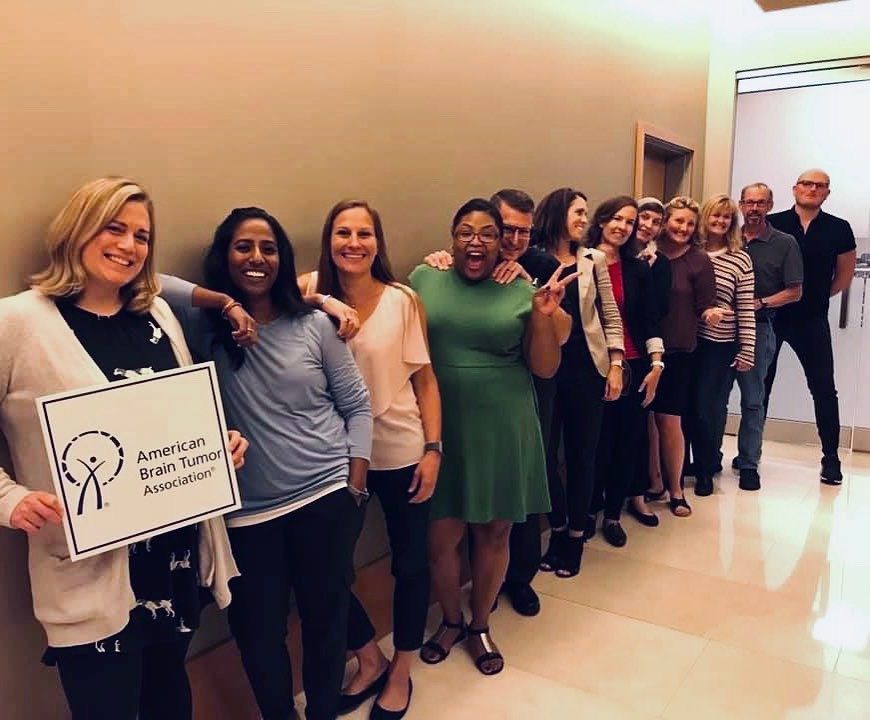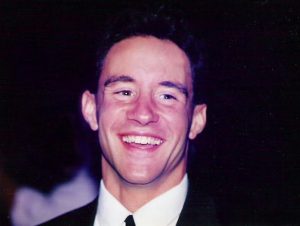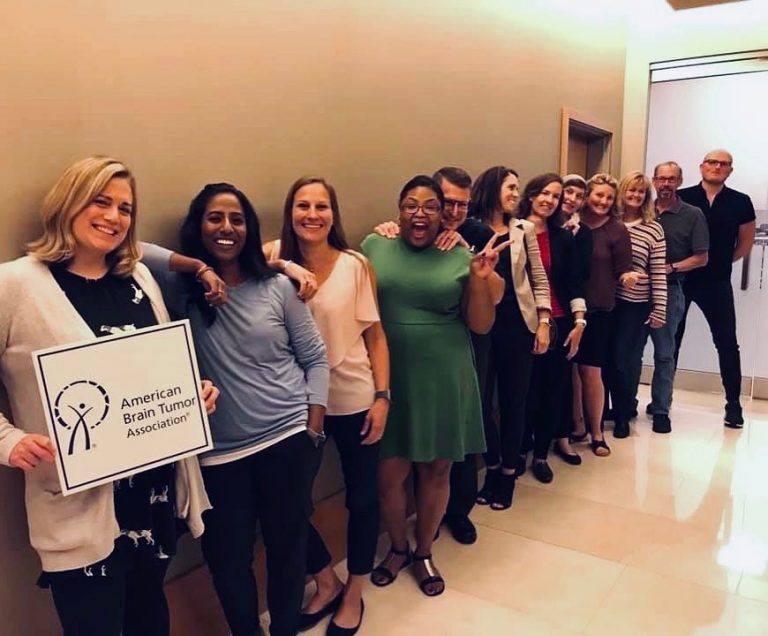
As we face uncertainty and challenges at this time, ABTA volunteers persevere and continue to be the lifestream of the ABTA’s mission to fund transformative brain tumor research and provide critical patient programs and services. This month, the ABTA dedicates MindMatters to all volunteers in the brain tumor community.
“When a loved one receives a brain tumor diagnosis, it’s a scary time. Friends and family may not be familiar with brain tumors or know how dire the prognosis can be to the patient,” said Caroline, ABTA volunteer. “Brain tumors are unpredictable and everyone’s journey is different. So, having someone to talk to who is familiar with the emotional and physical experience, can mean the difference between a challenging journey or a rocky one.”
With National Volunteer Week taking place April 19-25, we celebrate our ABTA volunteers for their commitment, talents and time to help the ABTA work towards a future where not one life is lost to a brain tumor.
ABTA volunteers come from all walks of life: survivors and patients who share their experiences for others along a similar journey; family members who tirelessly volunteer their time to honor lost loved ones; caregivers and family members who give back to those who face uncertain roles and responsibilities.
“When my dad was diagnosed with a brain tumor in 2006, I ran races and marathons to help fund brain tumor research. When I couldn’t do that anymore, I turned to other ways to give back and that included volunteering with the ABTA,” said Caroline.
Personal and Community Impact
Volunteers not only help the ABTA as an organization, but also gain a host of benefits too, including improved emotional health and well-being, confidence and self-esteem.1
So, it’s no surprise that ABTA volunteers achieve these advantages and more from the ABTA National Volunteer Program. This volunteer program offers an array of experiences for volunteers, such as leading or supporting fundraising events like the BT5K run/walk, Team ABTA or a Fundraise Your Way event. Volunteers may also provide direct support through patient/caregiver mentorship or public speaking engagements, just to name a few.
ABTA’s High-Impact Volunteers
Volunteer Advisory Council members are ABTA leaders who leadership and deliver impact across multiple volunteer platforms.
Alicia Morris, Director, National Volunteer Program
Three years ago, the ABTA elevated key volunteers into a high-impact volunteer program, called the Volunteer Advisory Council. The ABTA Volunteer Advisory Council is an active group of volunteers from across the country who provide insights, perspectives and recommendations on the ABTA volunteer program and other organizational efforts. Among their multifaceted responsibilities, Volunteer Advisory Council members take on leadership opportunities and delve deeper into the ABTA’s programs and initiatives to better respond to the needs of the brain tumor community.
With this deep responsibility to affect change at the organizational level, the ABTA is investing in our volunteer community by providing hands-on training and direct access to a nationwide network of brain tumor volunteers.
“Contributing as a volunteer helps to keep my aunt’s memory alive,” said 13-year volunteer veteran Ashlie. “It has turned our pain into productive philanthropy with a sense of joy.”
Voicing Their Impact
The ABTA Volunteer Advisory Council currently has seven members from across the country. Three council members, Ashlie, Caroline and Fred, share how their involvement makes a difference in their lives and the lives of the brain tumor community.
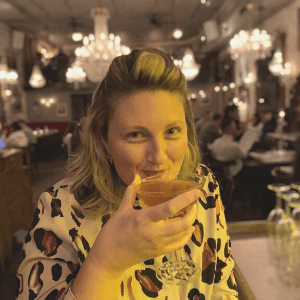
My experience has been simply amazing. I’ve learned so much from other Volunteer Advisory Council members. It’s been a great way to strengthen my communication and business development skills.
It has also positively impacted our local event, Amy’s Walk. I’ve applied principles that I’ve learned and made our event better. We now see our local event as part of a national effort and that feels great! We’re really making a big difference.
– Ashlie
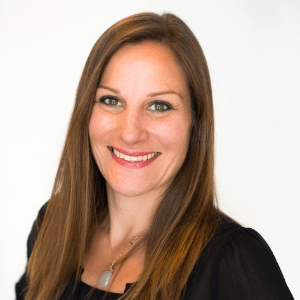
The council members are incredible. They are from all different backgrounds, disciplines and with varying experiences in the brain tumor community. We collaborate and learn from one another, while executing the goals of the committee to support the ABTA volunteer programs and outreach. My first year has been incredible.
– Caroline
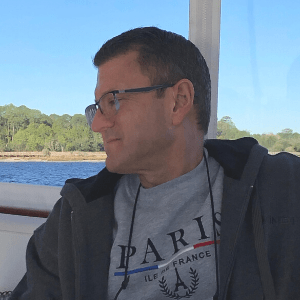
Working with the ABTA Volunteer Advisory Council has been a very rewarding experience for me. The networking and dedication of the members help advance the mission of the ABTA.”
You Can Make an Impact Too
“Whether you sign up to help raise money for an ABTA BT5K Run/Walk; host a golf tournament, bowling tournament, bingo party or olunteer to support ABTA programs, you will make a difference in the lives of brain tumor patients and their families,” said Fred.
It simply starts with a phone call or email to the ABTA Volunteer Services. This conversation kicks off with an understanding of your interests and how the volunteer program can meet your needs.
“Sharing resources, raising awareness and donating dollars, saves lives and provides critical support for patients and caregivers,” said Ashlie.
There are a variety of opportunities to make an impact for the brain tumor community. Consider sharing your time and expertise with the ABTA National Volunteer Program. Contact Volunteer Services at volunteer@abta.org or 773-577-8767 for more information.
1 Helpguide.com. “Volunteering and its Surprising Benefits.” June 2019. Accessed on 4/5/20 at https://www.helpguide.org/articles/healthy-living/volunteering-and-its-surprising-benefits.htm.


